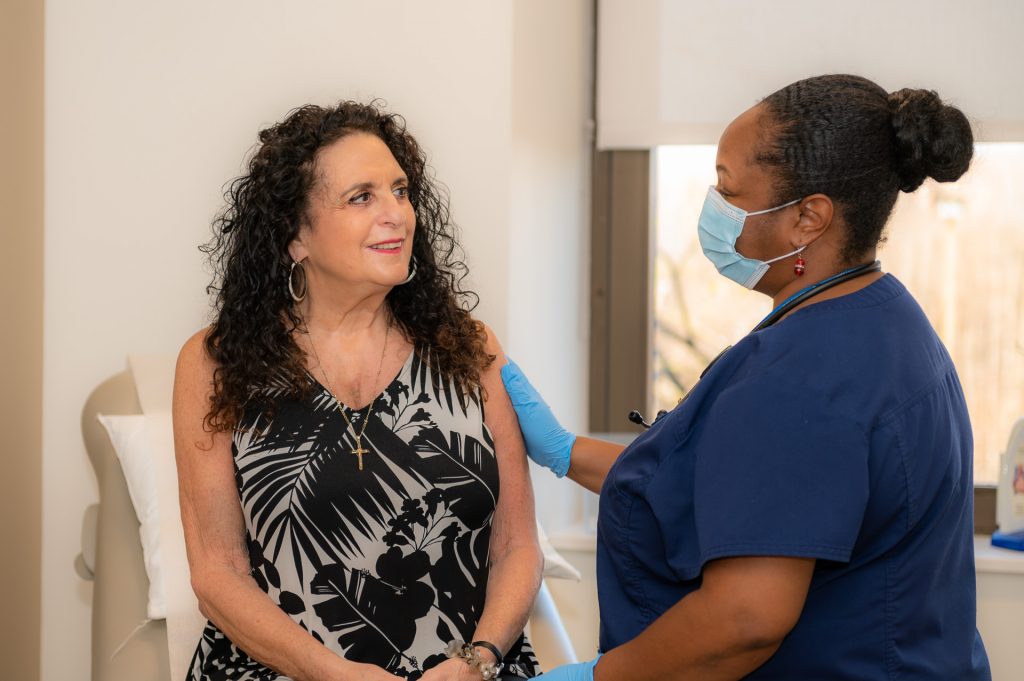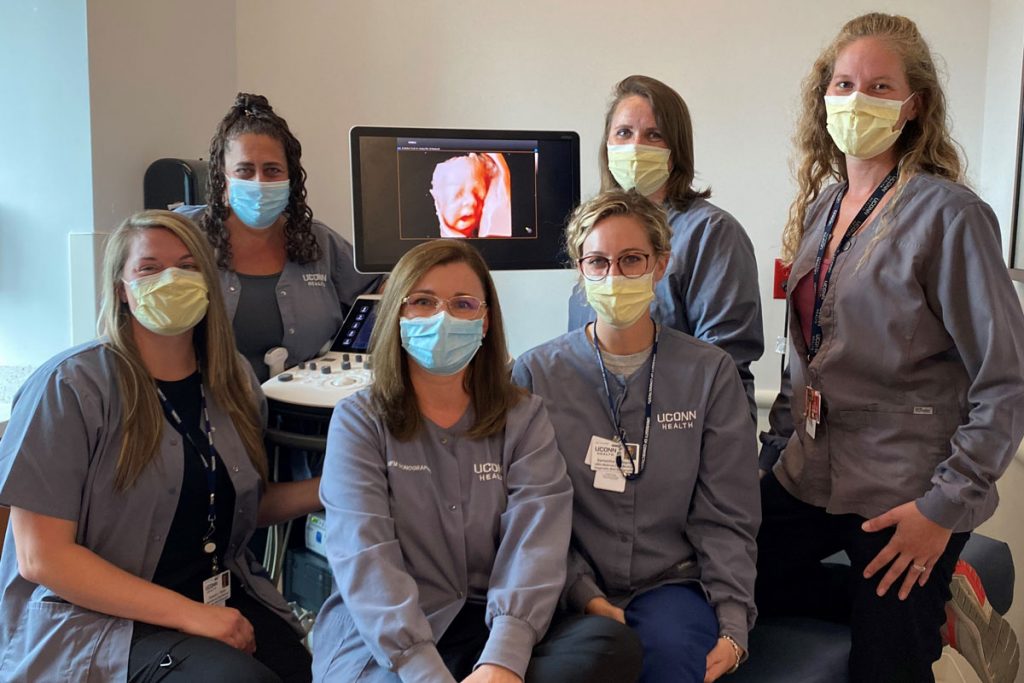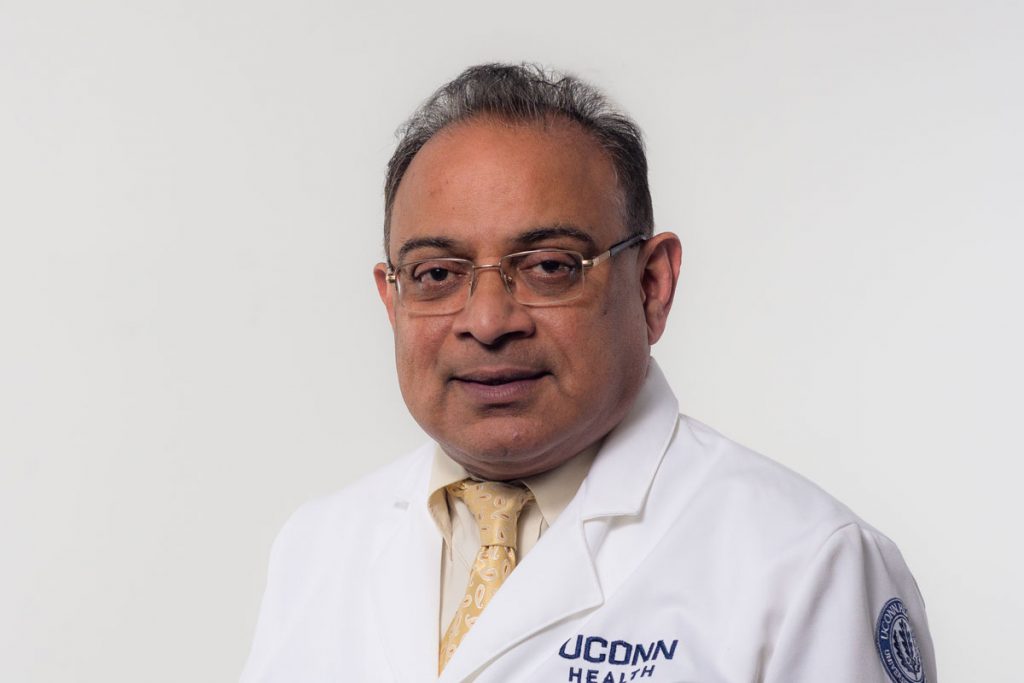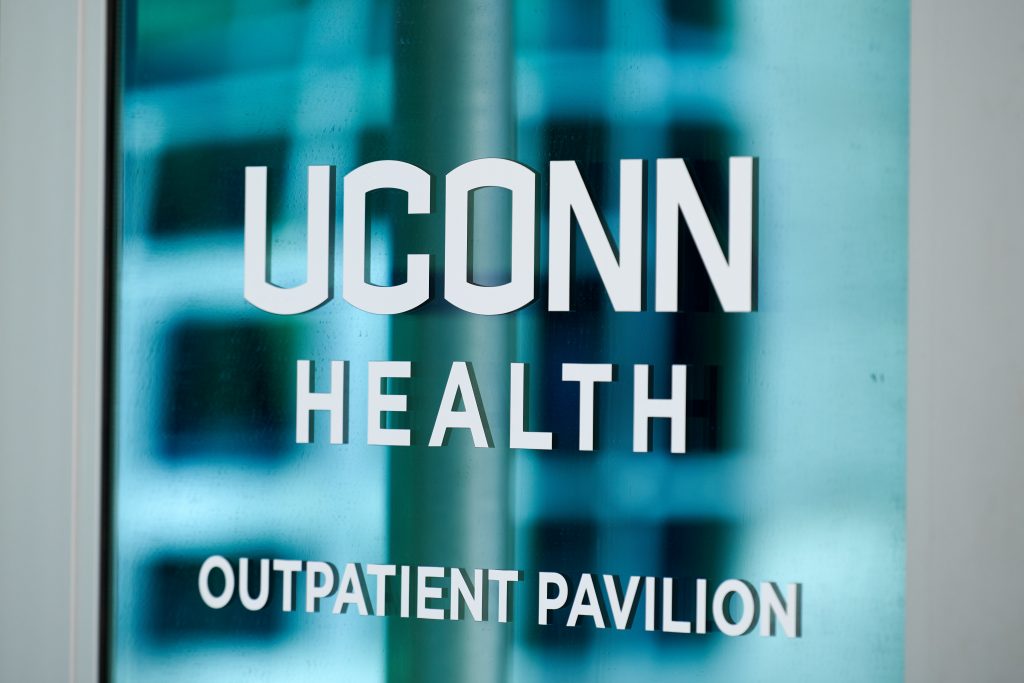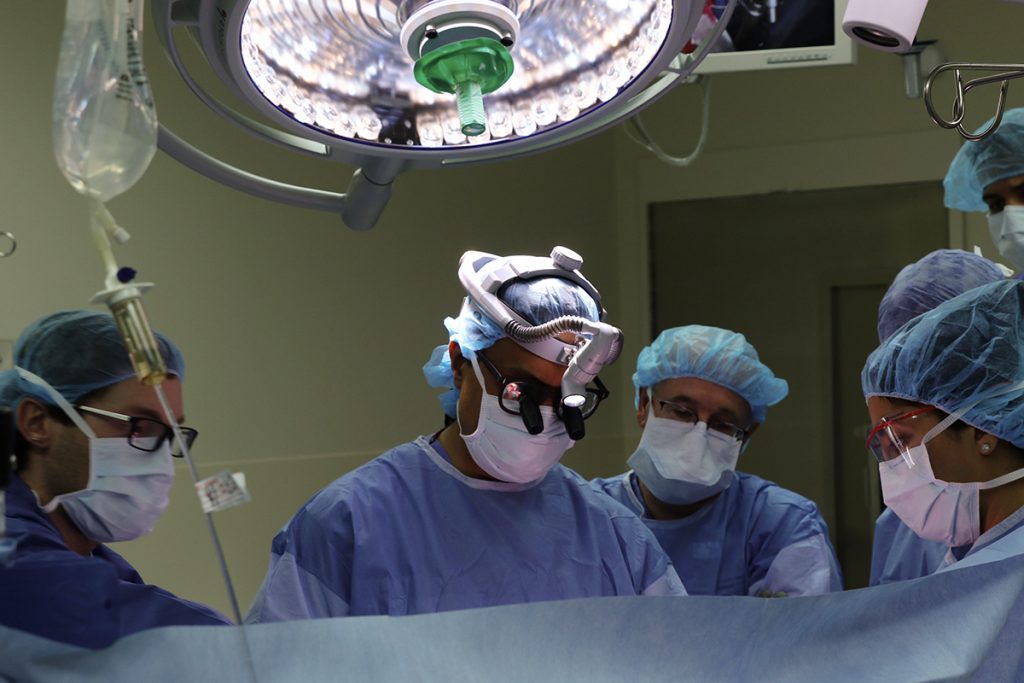Cardiology
40-Year-Old Father’s Life and Livelihood Saved by UConn Health Cath Lab
Fred Veilleux, 40, of East Hartford is a father of three children and the picture of strength. Learn how UConn Health's Calhoun Cardiology Center got him quickly back to his family and also back to work lifting 3,000 lbs. a day.
February 10, 2022 | Lauren Woods
Heart Health Remains Paramount Concern for Women, Even During Pandemic
Delaying health care over fears of the COVID-19 virus can have potentially deadly consequences
February 1, 2022 | Lauren Woods
Dr. Bruce T. Liang Named Interim CEO of UConn Health
'I hope to fulfill the great potential and promise of UConn Health,' says Liang, who begins his role Feb. 1
January 27, 2022 | Lauren Woods
Healthy Holiday Choices
With another holiday season upon us, two UConn Health experts offer guidance on how to have less to undo when it's time for new year’s resolutions.
December 16, 2021 | Chris DeFrancesco '94 (CLAS)
Thanks(giving) for Open-Heart Surgery Just in Time for Holidays
Lucy Tine never thought she'd need heart surgery, until she began feeling strange while doing everyday activities
November 18, 2021 | Lauren Woods
Spotlight on Services: Medical Ultrasound
Sonographers at UConn Health describe their roles and how their work in diagnostic imaging fits in to the larger health care picture. October is Medical Ultrasound Awareness Month.
September 30, 2021 | Chris DeFrancesco '94 (CLAS)
American Heart Association Recognizes UConn John Dempsey Hospital with Gold-Level Honors
The American Heart Association (AHA) has once again recognized UConn John Dempsey Hospital for its excellence in heart attack and stroke care with gold-level honors.
September 1, 2021 | Jennifer Walker
UConn Health Introduces Chief of Cardiothoracic Surgery
Dr. C.B. Sai Sudhakar brings experience building cardiothoracic surgery programs to expand UConn Health’s academic and clinical offerings in the discipline.
August 19, 2021 | Chris DeFrancesco '94 (CLAS)
UConn Health Researcher Establishing Research Mentorship Program for Underrepresented Students in STEM
Kimberly Dodge-Kafka is establishing a research program to mentor students from underrepresented communities. This work will help promote diversity in the biomedical sciences.
2021 Top Doctors Named by Connecticut Magazine
See which 43 UConn Health physicians have been named 2021 Top Doctors by Connecticut Magazine. Plus, read more about four UConn Health doctors and their additional unique talents beyond their daily practice of medicine.
June 2, 2021 | Lauren Woods




